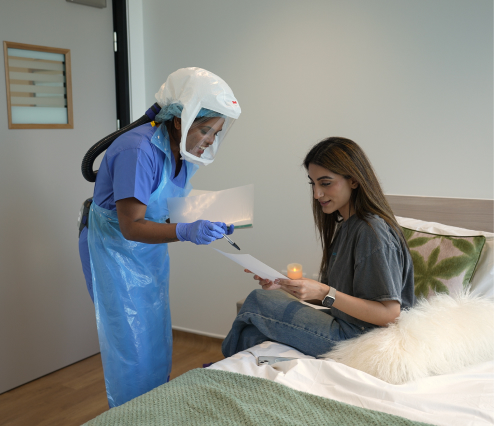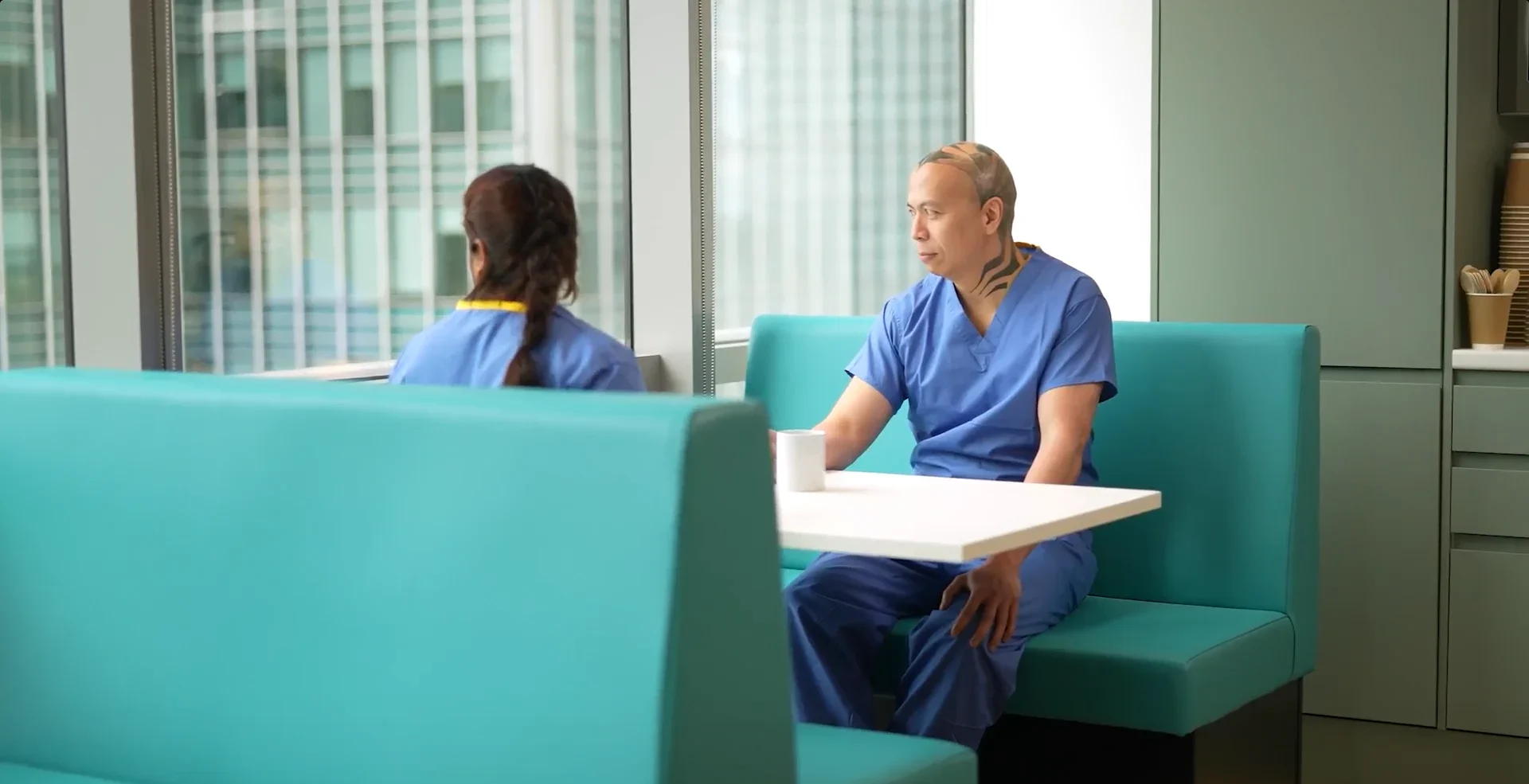Clinical trials are essential processes in the field of medicine, helping to determine the safety and effectiveness of new treatments, drugs, or medical procedures. These trials involve volunteers who agree to participate in the study under carefully controlled conditions.
If you’re curious about what clinical trials entail or considering participating in one, this guide will provide you with comprehensive insights into the process.
- What is a clinical trial?
- Why are clinical trials important?
- What are the phases of a clinical trial?
- What happens during a clinical trial?
- What is the purpose of clinical trials?
- Are clinical trials safe?
- Volunteers’ rights during a clinical trial
- How do volunteers get chosen for a clinical trial?
Use the links above to skip ahead to the questions you’re most interested in.
what is a clinical trial?
A clinical trial is a crucial step in the process of bringing new medical treatments, drugs, or procedures to the market. These trials involve human volunteers who agree to participate in carefully controlled studies to assess the safety and efficacy of the interventions under investigation.
Clinical trials are meticulously designed and conducted according to strict protocols and regulations to ensure the integrity of the data collected and the safety of the participants.
Volunteers play a vital role in advancing medical knowledge and improving healthcare outcomes for future generations by participating in clinical trials.
why are clinical trials important?
Clinical trials are crucial for advancing medical knowledge and improving patient care. They provide researchers with the opportunity to test new treatments in a controlled setting, gathering essential data on safety and effectiveness. By following standardised protocols, clinical trials ensure that medical advancements are based on rigorous scientific testing, addressing unmet medical needs and offering hope to patients.
Additionally, participating in clinical trials can provide volunteers with access to cutting-edge treatments and close monitoring, contributing directly to medical progress and the development of evidence-based healthcare.
what are the phases of a clinical trial?
Clinical trials progress through four distinct phases, each serving a unique purpose in the evaluation of a new treatment or intervention:
Phase one: a small group of volunteers (6-10 volunteers)
In phase one trials, a small group of volunteers, typically between 6 to 10 individuals, is recruited. These trials primarily focus on assessing the safety profile of the treatment and determining the appropriate dosage levels.
Volunteers are closely monitored for any adverse reactions or side effects as researchers aim to establish the treatment’s safety parameters.
Phase two: a larger group of volunteers (20-300 volunteers)
Phase two trials involve a larger group of volunteers, ranging from 20 to 300 individuals. Building upon the findings from phase one, these trials further evaluate the safety and efficacy of the treatment, often in specific patient populations or conditions.
Researchers closely monitor participants’ responses to the treatment, gathering data to assess its effectiveness and potential benefits.
Phase three: a large group of volunteers (300-3000 volunteers)
Phase three trials enrol an even larger group of volunteers, typically ranging from 300 to 3000 participants. These trials aim to confirm the treatment’s effectiveness, monitor side effects, and compare it to existing standard treatments or a placebo.
Phase three trials provide critical data to support regulatory approval and widespread adoption of the treatment.
Phase four: post-marketing surveillance trials
Phase four trials, also known as post-marketing surveillance trials, occur after regulatory approval and widespread use of the treatment. These trials monitor the treatment’s long-term safety and effectiveness in real-world settings and larger patient populations.
Phase four studies provide valuable insights into the treatment’s performance beyond the controlled environment of clinical trials, helping healthcare providers make informed decisions about its use.
Each phase of a clinical trial plays a vital role in advancing medical knowledge and improving patient care, ultimately contributing to the development of safe and effective treatments for various health conditions.
What happens during a clinical trial?
During a typical clinical trial, volunteers undergo a series of carefully planned procedures and assessments.
- Pre-test screenings: Volunteers undergo thorough medical evaluations and screenings to ensure they meet the eligibility criteria for the trial.
- Quarantine or controlled environment: Depending on the trial’s requirements, volunteers may need to stay in a controlled environment, such as a clinical research facility, to ensure adherence to the study protocol and monitor for any adverse reactions.
- Treatment administration: Volunteers receive the investigational treatment according to the trial protocol, which may involve medications, therapies, or procedures.
- Post-treatment evaluations: Throughout the trial, participants undergo regular assessments, including physical exams, laboratory tests, and interviews, to monitor their health status and response to the treatment.
A typical day in the life as a clinical trial volunteer at FluCamp revolves around structured routines aimed at ensuring your well-being and the success of the trial. Throughout the day, from morning health checks to evening relaxation time, every aspect is carefully orchestrated to provide a comprehensive experience.
what is the purpose of clinical trials?
Clinical trials serve several important purposes in advancing medical science and improving patient care:
- Observing potential side effects: Clinical trials help identify any adverse reactions or side effects associated with the investigational treatment.
- Testing effectiveness: Trials evaluate the efficacy of new treatments in achieving desired outcomes compared to existing standard treatments or placebos.
- Exploring new treatments: Clinical trials provide an opportunity to explore innovative therapies for various diseases and conditions, addressing unmet medical needs.
- Evaluating preventive measures: Some trials investigate preventive interventions, such as vaccines or lifestyle modifications, to reduce the risk of developing specific diseases or conditions.
are clinical trials safe?
Regarding clinical trial safety, while it’s true that clinical trials carry certain risks, these are often minor and manageable. Clinical trials undergo meticulous testing and external review processes before they are made available to volunteers. Government agencies and boards, such as the UK government, play a pivotal role in ensuring that these trials meet stringent safety standards.
At FluCamp, our work follows the highest standards, with all medical trials regulated by the Medicines and Healthcare Products Regulatory Agency. Each trial undergoes review by external bodies like the Research Ethics Committee. We maintain a unified quality management system, ensuring compliance with relevant regulations such as the Medicines for Human Use (Clinical Trials) Regulations 2004 and Good Clinical Practice (GCP).
volunteers’ rights during a clinical trial
Volunteers who participate in clinical trials are granted specific rights to safeguard their safety, well-being, and autonomy throughout the study process. These rights are designed to ensure transparency, informed decision-making, and respect for participants’ autonomy. These include:
right to withdraw
Participants have the right to withdraw from the trial at any time, without penalty or repercussion. This right empowers volunteers to make decisions about their participation based on their evolving circumstances, comfort levels, or personal considerations.
Researchers and healthcare professionals involved in the trial must respect and uphold this right, providing participants with the necessary support and guidance should they choose to withdraw from the study.
informed consent
Central to the ethical conduct of clinical trials is the principle of informed consent.
Before enrolling in a trial, volunteers receive comprehensive information about the study, including its purpose, procedures, potential risks and benefits, and their rights and responsibilities as participants. This information is presented in an accessible manner, allowing volunteers to understand the nature of the trial and make informed decisions about their participation.
Informed consent is not a one-time event but an ongoing process throughout the study, ensuring that participants remain fully informed and engaged in their role in the research endeavour.
how do volunteers get chose for a clinical trial?
In clinical trials, participants are carefully selected based on specific criteria to ensure the integrity of the study and the safety of the participants. This selection process involves screening prospective participants against both ‘inclusion’ and ‘exclusion’ criteria.
Inclusion criteria outline the characteristics or conditions that qualify individuals for participation, such as age range, medical history, or disease status relevant to the study’s objectives. Conversely, exclusion criteria specify factors that disqualify individuals from participating due to potential risks, medical conditions, or other considerations that may confound the trial results.
However, even if individuals meet the initial criteria, participation in a trial is not guaranteed, as selection depends on various factors, including the trial’s specific requirements and the availability of slots for participants.
what next?
We hope this guide has provided you with a better understanding of what a clinical trial is and the importance of them.
If you are interested in participating in a clinical trial or have any questions about safety, we invite you to reach out to FluCamp. Visit our website for more information, and feel free to contact us with any questions.




Apply now and get up to £4,400 in compensation
Lorem ipsum dolor sit amet, consectetur adipiscing elit, sed do eiusmod tempor incididunt ut labore et dolore magna aliqua. Ut enim ad minim veniam.Lorem ipsum dolor sit amet, consectetur adipiscing elit.





